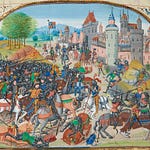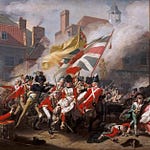Originally published on September 28, 2023
Introduction
This episode marks the third part of an informal trilogy introducing the themes of Intellectual Humility and Historical Thinking. Earlier conversations featured philosopher Michael Patrick Lynch, who explored epistemology in the age of information, and social psychologist Igor Grossmann, whose research investigates how people make sense of the world through their expectations, lay theories, and cultural frameworks.
Here, Al turns the focus squarely onto history itself. Who better to do that with than Lendol Calder, the historian who first taught him that one of the most important benefits of historical thinking is intellectual humility. Calder recounts how, beginning in the 1990s, historians across multiple countries began shifting history pedagogy away from rote content toward learning how historians actually think. This shift, influenced by parallel work in social psychology on expertise, sought to define what makes historical thinking distinctive from other disciplines.
The conversation ranges across the origins of the “historical thinking” movement, the craft-like qualities of practicing history, and why historians should inhabit and pass on the discipline as a form of apprenticeship. It makes the connection between intellectual humility and historical thinking explicit: history trains us to accept complexity, resist easy answers, and cultivate a stance of reflective modesty toward our own judgments.
About the Guest
Lendol Calder is Professor of History at Augustana College. Widely recognized for his contributions to teaching and pedagogy, he coined the influential term uncoverage to describe a model of teaching survey courses that emphasizes historical thinking over rote coverage of content.
For Further Investigation
Lendol Calder, “Uncoverage: Toward a Signature Pedagogy for the Historical Survey,” Journal of American History (2006)
Regan A. R. Gurung, Nancy L. Chick, Aeron Haynie, eds., Exploring Signature Pedagogies: Approaches to Teaching Disciplinary Habits (2008)
Related Listening
Intellectual Humility and Historical Thinking Series
💬 Listen & Discuss
How does learning to “think like a historian” cultivate humility? Have you ever found yourself changing your mind when faced with new historical evidence or interpretations? Share your thoughts in the comments, and pass this episode along to someone curious about what historians really do.











